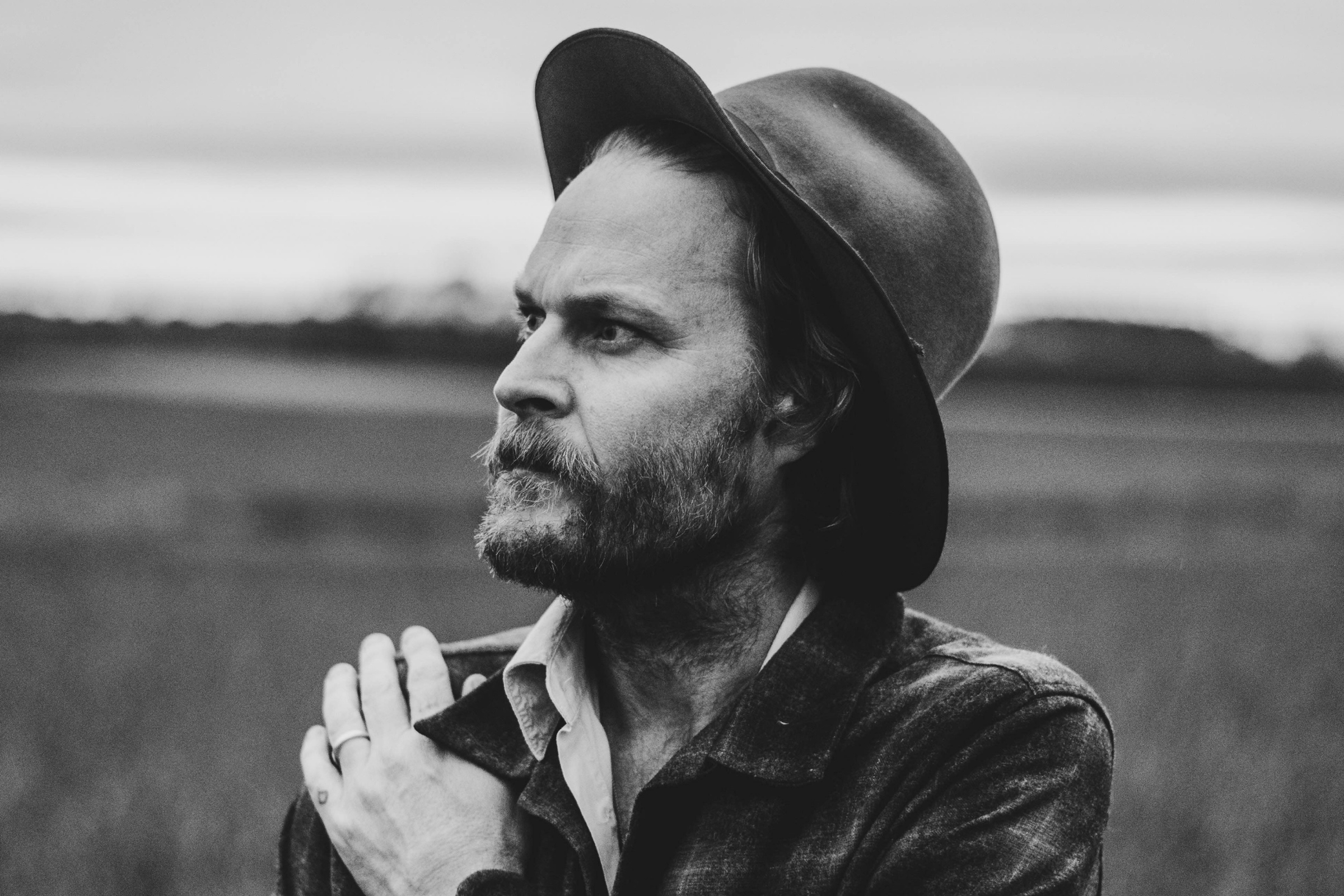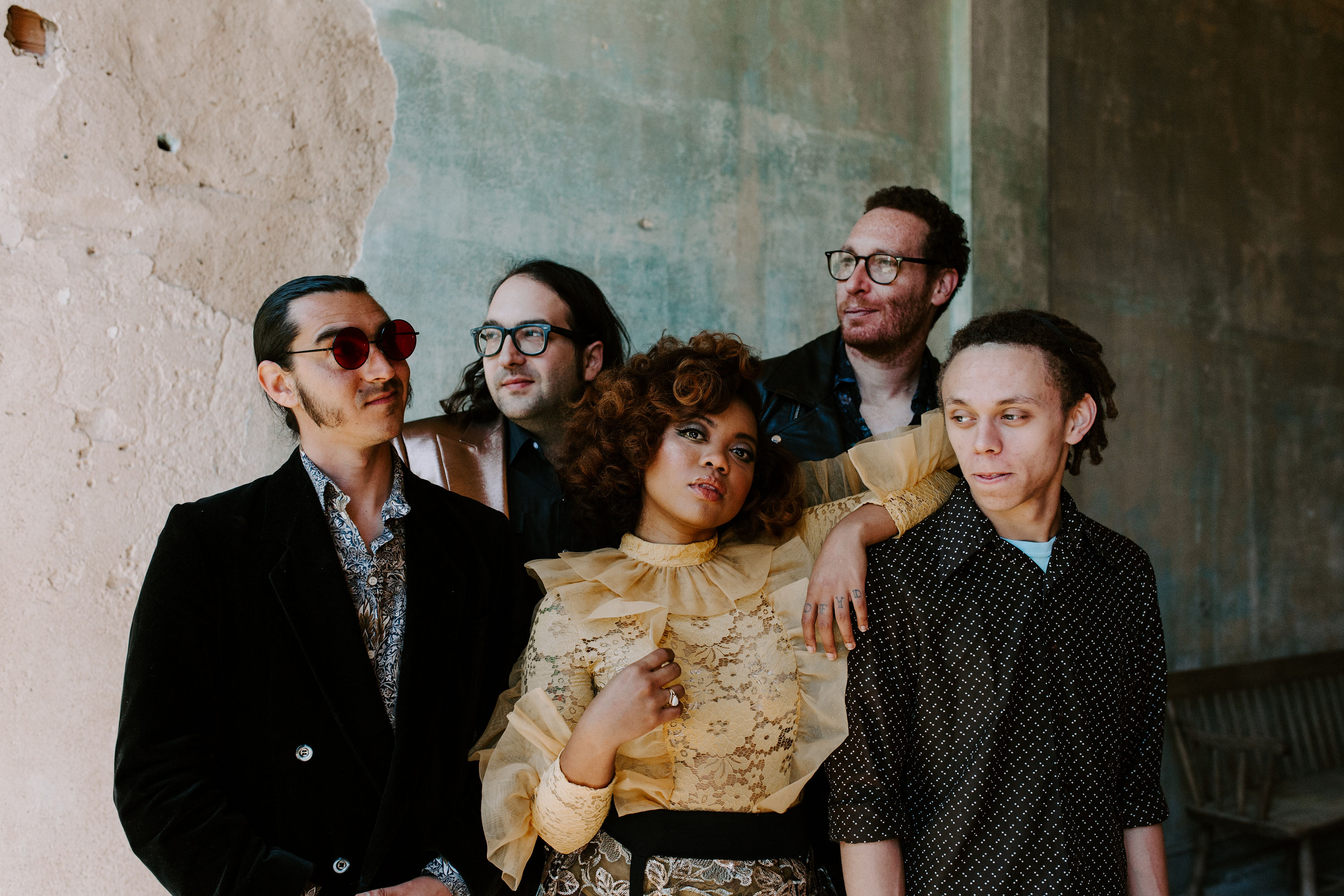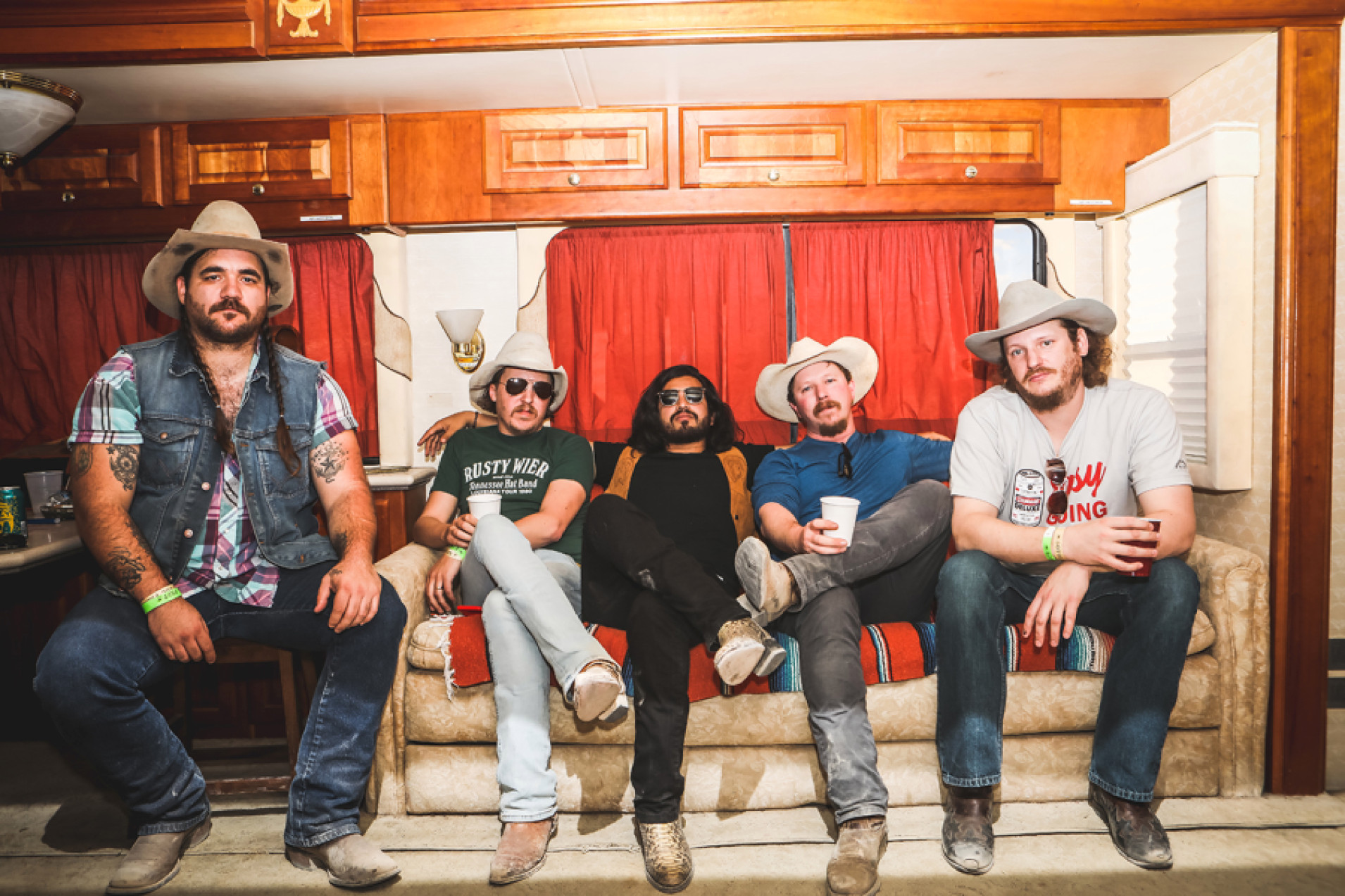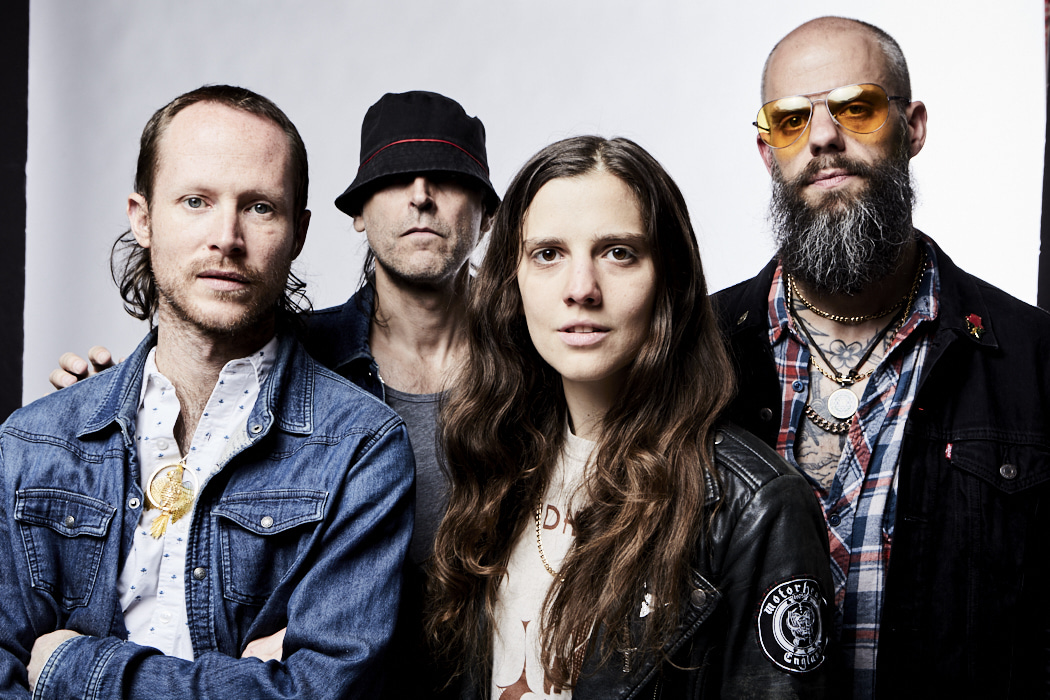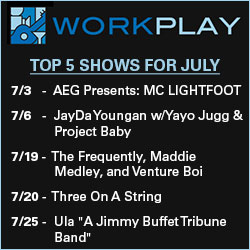A conversation with Taylor Goldsmith of Dawes
Dawes released Passwords this June, their sixth record in less than a decade. The band has a long history with Birmingham; they headlined one of the first Secret Stages, they’ve name checked the city twice and it’s been a regular stop on most every tour they’ve had. But they’re from Los Angeles, and maybe that connectivity to the Magic City is a bit uncommon for a band from the other coast.
Taylor Goldsmith is the lead singer, and he’s 33 now. That, too, seems unusual for a man that was recording with folks like Benmont Tench and John Fogerty nearly a decade ago. He’s engaged to Mandy Moore, and he continues evolving in his own songwriting as he explores his own emotions about his life and the world around him.
Before returning to Birmingham, he talked about those early triumphs, the fear of failing, his relationship with the Magic City, mending relationships and why he’s careful and deliberate about the way he approaches political discourse.
After you guys evolved into your sound, it kind of fell into an Americana or folk thing, and that’s usually associated more with Nashville these days. How did you find that out in Los Angeles?
Our guiding lights were always, “What’s a good song?” I was listening to stuff that was very much not a part of Americana that felt like, to me, great songwriting, and then a lot of stuff that did fall under Americana. But it was always kind of secondary. We were just looking for good songs and good inspiration. Sometimes that would be Bob Dylan and Neil Young, but other times it would be Lou Reed or Jim James or Kanye West or whatever would get us excited. And I feel like when we were first starting out, honestly, I was late to the party with a lot of discoveries. I was listening to – in my opinion – some pretty bad pop music when I was a kid that didn’t really dig into any roots. Because of that, I started arriving at Bob Dylan and The Band and Creedence Clearwater [Revival] and Crosby Stills and Nash and Joni Mitchell very late. I was 24 when we were releasing North Hills and I was kind of having my mind blown by John Fogerty at the time. Like any band, we were just trying to dip our toe into the things that we loved the most. And at that time, that spectrum was pretty tight. We didn’t really venture off into that much else. I couldn’t stop listening to Bob Dylan or Neil or Creedence. So our first record sounds like that.
And then with each record, you start learning to play your instrument better, you start listening to more music and that starts to reveal itself in the music without us even trying to, you know? I think the objective has always been the same in that I want to hear something come out of the speakers that I didn’t know I could do. Whatever that means. North Hills didn’t take that much. It just took me strumming an acoustic guitar and singing some words and some harmony and all of a sudden, we kind of blew our hair back. As time has gone on, the criteria for us to surprise ourselves has changed. Sometimes, that’s a matter of getting weirder and going further out – like a song like “One of Us” or something – and then sometimes, it’s a matter of getting even simpler. Doing a song like “Time Flies Either Way.” I don’t mean to say that we’re going to get weirder and weirder, but like any artist, you can’t just go back to your comfort zone. Miles Davis once said, “I’m really good at playing ballads, and that’s why I’m not going to play ballads anymore.”
You mentioned Fogerty being a guiding light for you, and you’ve actually gotten to play with him. How did you find yourself playing with him and what was the experience like?
That was insane. It was obviously an unbelievable experience to get to be in the same room with him. I feel like the luckiest person in the world when it comes to that sort of thing. We’ve had so many opportunities to play with heroes of ours that it kind of flips me out. When we’re around these folks, the hardest part is trying to be cool; to try not to be the fan you are. I’m the kind of person that if I’m a fan of what you do, you’re going to know it. I’m not going to be able to hold back. Hopefully not in an annoying, overbearing way, but I’m going to discuss certain lyrics with Conor Oberst and I’m going to discuss certain keyboard choices with Elvis Costello and I’m going to discuss certain songs with John. That’s just who I am. But I’ll always try to come at it from a place of respect and not just some kind of blanket adoration; because I don’t know if anybody is good at receiving that kind of information. It’s just that, “I’m here and obviously I’m lucky and there could be 20 guys that could be just as good or better in this chair that I am lucky enough to be in right now.” But I also know that this is an opportunity to prove myself, so I’m not going to just turn into a fan boy. I’m really going to spring everything I’ve got.
You’re 23 or 24 when you’re recording that first record and you find yourself in the same room as a guy like [Tom Petty and the Heartbreakers keyboardist] Benmont Tench. How did you do something like that so young?
I think at that age, we were just sort of expecting everything to fall apart. We were treating it all like, “Well, a month from now, we won’t get to do this, so let’s enjoy it!” That was kind of the attitude.
So when things kept perpetuating themselves and we got to keep doing it, every day was a surprise. Honestly, it goes for anybody. It goes for you; it goes for me. When you’re doing something artistic or you’re a writer of some kind, you never can believe that things aren’t going to be over next week. I still think about that. Every time we finish a record. Like, a month after we finish it and we’re waiting to hear masters and we’re waiting on everything to come back, I all of a sudden follow this train of thought where I’m thinking, “Well, since I know I have to get a job in three years…” [laughs] and I go through this – it happens every time. I remember it vividly on Nothing is Wrong and Stories Don’t End and to this day, you think, “This is a thing that I have always wanted and because I’ve always wanted it, that makes it precious and therefore I’m afraid of losing it.” Which, I think, is a very spiritually unfit process so I try to bite it and be mindful of the fact that if it were all to end tomorrow, it’s still a victory. But it is funny that I’ve never been able to think, “Wow! We’re successful!” I’ve never thought that. Even though I am deeply aware and grateful for everything that we’ve gotten to do.
You grew up in a very musical family – your brother is in the band and your father was a musician. Was there ever any point that you stepped away from it and thought about what you’d be doing if it weren’t music?
I shudder to think what that would be. I would hope that I could learn to do something, but at this point, that’s the only trade I know. Like, I watched an interview recently with David Letterman where he said, “If I don’t do what I did, I don’t know what I’d be. My skills are so limited to this one thing.” And we all perceive him as this national treasure and this bad [expletive] and this brilliant mind. By being thrust into this gig for so long, you get to the point where trying to imagine what you’d be otherwise is unthinkable. Now that I’m 33 and I’m well past the point of learning journalism or learning how to write a story or even fix a house – I have no clue who I would be if not for the path that we’ve gone down.
You’ve been really prolific over that decade. Six records in less than a decade is insane. How do you maintain that pace?
I don’t know. Honestly, I often beat myself up for not writing enough, and maybe that’s part of the answer to the question. We all have a lot of friends that live by the attitude of, “I’m doing everything I can.” Then we have friends that live by the attitude of, “What else can I do?” Because there’s never not an answer to that question. I try to live in that space. “What am I not doing that I could be doing? How soon could we get into the studio?” I like how that feels. I like that there’s a lot of music always on its way.
I also feel like it’s good for the material in a sense. Not that I don’t want to always be doing my best; obviously that’s the number one priority. But I also find that when you’re a band that puts four or five years between records, the pressure is really on and it’s really high because it needs to really represent all of that time you took off. Whereas when you look at these artists that are releasing a record every year or every two years, there’s this attitude from the listeners where, “Well, there’s always more music in the pipeline.” Like, if Bob Dylan made Empire Burlesque and didn’t make anything for the five years before it or the five years after it, people might have lost their [expletive]. Like, “What is this? Is this where he is now?” But you know that’s just where he is now, and he’s going to be doing something different a year from now. It allows you to contextualize the work. I’ve always enjoyed that as a listener. To look at something as the middle of a catalog rather than the period that ends a sentence.
You’ve written some songs for other artists. Is that a deliberate process? Is there ever a moment that you think, “Oh, no. This song is too good. I’ve got to keep this one for myself.” How does that process work for you?
I haven’t had that experience because the times that I have written with other artists, it’s always been with them or trying to be in their mindset of some kind. I’d like to do more of that, honestly. It’s a fun thing. It’s a funny world; I want to write more for anybody and everybody, but I also want to do it on my terms. If such-and-such pop star were to be like, “Oh, I like that band Dawes. I want Taylor to come in and write a hit with me.” I would almost feel like – for their sake – to be like, “I don’t know if I’m your guy. I don’t know how to do that.” You hear stories of people that work in the songwriting world and every day it’s like, “Well let’s try to write a hit; let’s try to write a hit.” That’s not how my brain works. That’s not how I want to work. But if someone wants to get into what I do – which, I don’t know how helpful that’s going to be to their career – then I’d love to do more and more of that. When you’re writing your own songs, you’re trying to carve out your own experiences and emotions and putting words into certain feelings, whereas when you’re writing for other people, you’re just throwing stuff at the wall and seeing what sticks and seeing what they identify with. There’s a lot less of an emotional attachment. Then, you’re starting to work in devices and structures and you’re letting them kind of fill the space in the way that they need to emotionally. It’s a very different side of the songwriting brain that’s very fun to explore.
Is co-writing something that you would ever do with [fiancé] Mandy [Moore]?
We have done it. We have done it a little bit. When you’re that close with someone and you spend every second that you possibly can with them and you try to explore these private thoughts together, it can be an added challenge. She’ll write with our mutual friend, Mike Viola – he produced some of her music and he’s an incredible songwriter. His newest record blows my mind on a regular basis. They write together and they can go to that place very easily. And she and I have been able to get there a couple of times, but other times, it’s just an added step and we’re learning to go there together. But writing with her is one of the greatest joys of mine as a songwriter over these last two years.
You guys were one of the first headliners of a Birmingham festival called Secret Stages. That festival has seen a lot of young bands come through that have gone on to become big. What do you remember about the experience and how important has Birmingham been to your career?
Birmingham has always been a connected spot for us. Mainly because of the song “That Western Skyline.” So every time we would cruise through there, there felt like there was an embrace; like people kind of owning us in a way that felt really nice and familiar. Whether it was at a festival or those early shows at BottleTree – so many good memories at BottleTree; of opening for bands and then doing our own headlining shows. Every time we’d cruise through there, we felt like we identified with this place and to a certain extent, they identify with us. There’s not that many cities that have that; there’s the obvious ones, like songwriting city Nashville or our hometown in L.A. or New York City, but in Birmingham, there’s actually a deep connection for Dawes and that city because of that song.
And then when we did “Roll Tide” off of our fifth record that also name checks Birmingham, I felt like that deepened that dialogue. So it’s always been somewhere that we’ve looked forward to a lot.
What inspired “Roll Tide?” How did that happen?
My buddy that I write a lot of songs with, Jason Boesel – we wrote “Picture of a Man” together, we wrote “Tequila Runs Out” together, we wrote “Mistakes We Should Have Made” together, we wrote “Stay Down” together – “Roll Tide” is a song that he wrote by himself. He brought it to us and he said, “I don’t know what I’m going to do with this, what do you think?” And we thought it was beautiful. And I thought, “Well, since I didn’t really write any of it, let’s have Griff sing it. And his voice sounds so good on it. We thought it was a song that could be a piano ballad, but it has almost an ironic attitude and sense of humor to it that might not exist in other piano ballads. So we thought it could be a good moment for that record where we can kind of pull back, but we don’t do it in some overly sentimental way. We can re-appropriate a football phrase. It was one of our favorites off of that record, but it was definitely one that was a polarizing one. I felt like a lot of songs on that record were polarizing, but that one was definitely toward the top of the list.
Is it ever challenging being in a band with [your brother] Griff?
Not really. We just try to be mindful of not treating each other like brothers on tour. I trust him more than anything with music or my personal life or whatever. If either of us were to come at each other like, “Hey man, lobby call is in 15 minutes. Don’t be late.” And all of a sudden it had the dynamic of brothers, it’d be like, “Okay. You need to back up.” [laughs] So I think the trick for us is to – I look at all of these guys as brothers, but obviously with Griffin, there’s this very intense connection because we get to do this together. We’re gone from so much of our families and friends, so to have each other is a big deal. We just try to maintain a respect. Honestly, I’m sure I fail at this regularly, but with Griffin, I’ve always tried to just be a brother. Not an older brother; I don’t know if that would help. If he ever asks me for perspective on something, of course he gets it. But I think the trick for us is that neither of us has ever felt like the older brother or the younger brother, beyond the obvious, unavoidable facts of that.
Since your split a decade ago, you’ve each gone on to develop your own huge, unique careers. What is your relationship with Blake [Mills] like now?
It’s great! I was just texting with him today. He made We’re All Gonna Die with us and it was such a joy to have that with him. To work with him again, especially in that situation, made it so – in a funny way, even though it was years afterwards – it was our easiest thing to do together because the roles were so clear. He was the producer. When we were young, we didn’t know who we were. We didn’t know how much to lean on each other as songwriters. I was terrified and insecure. “If I’m not the lead singer, then who am I?” And Blake was such a good singer and such a good songwriter, I would feel intimidated and he was feeling that stuff, too, as a songwriter. He wanted to sing, but – you know – just all that stuff that happens when you’re 19-years-old and working with your friends. Luckily, it didn’t break us. Luckily, we were able to make the realizations that we needed to make about what we wanted for ourselves and move on. He didn’t really want to tour to the extent that we did, and we felt like we didn’t have a choice. Blake is so gifted; he can have whatever career he wants. He can be a touring guitarist or he can be a bad [expletive] producer. Or he can be a session guitarist. Or he can be a songwriter for folks. He can do it all. For us, that was never an option. We’re made to put out records and tour. That’s where our skills lie. The fact that we can still lean on each other – I love seeing how our music has developed differently over the years; I think that’s kind of a fascinating thing. He’s gone – and I mean this in the best way – his stuff has become more challenging and rich. It’s like music made for art galleries. For us, sometimes, it’s just fist-in-the-air, rah-rah, meathead songs with big choruses. That’s obviously probably not the best way to describe Dawes, but the duality of the directions is fascinating to me, especially because of how much we still admire and love each other.
You’ve not really aggressively tackled politics in recent years like many of your contemporaries have. How deliberate is that decision on your part?
With this new album, it’s touched on. But that’s about as much as it is – the reason for that isn’t because I’m not willing to share how I feel politically. I just want to make sure that when I do engage, it’s coming from a place that keeps a conversation open. I think everything is political. If someone is standing at the back of a venue just screaming at me, “Don’t talk about politics. Just play your songs.” That’s political. There’s no avoiding it. And if people resent how I feel, of course. I understand. But I also feel like I want to engage in a way that at least gives an opportunity for someone else to hear me. And that gives me an opportunity to hear them. If I were to jump on stage or Instagram and just say, “Do whatever you can to not vote for any Republican! Don’t vote for any of Donald Trump’s agenda!” All of these may be things I feel as an individual and I don’t particularly care who knows about it; I have no shame in the way that I feel. But I also don’t feel like that sort of thing invites a dialogue. That’s just shouting, and the people that will agree will agree and the people that don’t will just kind of crumple it up and toss it aside.
So how do I come at it from a place of letting people know how I feel, but that I am trying to approach it as a fellow human being that cares about our country and that cares about other human beings? That’s what I was hoping I explored a little bit in “Crack the Case.” This conversation isn’t simple enough for me to say, “I hate Donald Trump and I hope he’s out of office in two years.” I could say that, but I don’t know what mileage I’m getting out of that. Whereas if I say that this is a nuanced dialogue – these are people coming from perspectives where they’re all operating out of fear to some degree and love to some degree – and where we fall on those barometers is up to so many different factors.
For me to say someone that is going to vote for Donald Trump, “You’re a racist.” That wouldn’t be fair. Maybe they live in West Virginia where they work in a coal mine and they can’t pay for their family. And they know that their industry is failing. And on top of all of that, they’re being asked by progressives, “Hey, why don’t you consider more immigration?” That might feel like a direct threat to their livelihood. When you start to unpack these feelings, it’s not something that I can just point at and say, “Racist.” So I don’t want to. I might feel that some of these emotions and feelings are misguided by my criteria – whatever that means – but that doesn’t make it right or wrong. Being able to say this stuff to you, I’m more than happy to. But for someone to try to get a sound byte out of me or for me to put up a simple tweet that says, “[Expletive] this guy.” I just don’t know what help that’s doing. I think anybody that does care and wants to know how I feel about that stuff – it’s not hard to figure it out. But I don’t want to approach it so angry anymore. I think that that’s actually making things worse.
An Evening with Dawes is at Iron City on Friday, November 9. Doors open at 7 p.m. and the show begins at 8 p.m. Tickets are $31.50 in advance and $35.50 at the door. There is no opening act.



